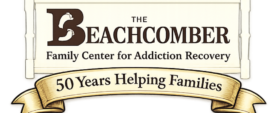Recovery from substance abuse or addiction is a lifelong journey. It takes an ongoing commitment to recovery and seeking healthy and healing choices for the rest of your life. At Beachcomber Intensive Outpatient Program, we’ve worked with many people on this journey through recovery.
As people recovering from addiction make the commitment to get healthy, they must begin to repair broken interpersonal relationships. Addiction can wreak havoc on relationships as it causes you to feel guilt and shame, hide from loved ones, break trust, or turn to manipulative and destructive behavior.
Originally designed for couples therapy by the Gottman Institute, the concept of the “Four Horsemen” is also helpful in addiction recovery. The Four Horsemen are characteristics that are predictive of unsuccessful relationships and need to be addressed in recovery.
Here are the Four Horsemen that need to be addressed by those recovering from drug and alcohol addiction:
1. Criticism
Criticism is attacking another person’s character rather than critiquing or complaining about a specific issue. Criticism in a relationship makes people feel hurt and rejected because their character is put in question.
Instead of criticism, it’s important to express specific complaints or concerns about the issue at hand. Be specific about the issue instead of making ad hominem attacks on someone’s character.
2. Contempt
Contempt is when you communicate in a way that treats others with disrespect. It can include things like sarcasm, ridicule, and name-calling. Rolling your eyes or scoffing also are signs of contempt.
This horseman is even more serious than criticism in a relationship because it makes someone feel worthless when they’re on the receiving end.
3. Defensiveness
Defensiveness is usually a response to criticism. If someone feels like they’re being questioned or accused of something, they look for excuses and reasons to get the person to back off.
This type of communication does not lead to healthy relationships because there is no room for accepting responsibility, understanding each other, or working towards a solution.
4. Stonewalling
Just as defensiveness is a response to criticism, stonewalling is a response to contempt. This is when the receiver of contempt will withdraw from the interaction. They might shut down, leave, or just not respond. Again, this cannot lead to a healthy relationship because there is no communication!
These four horsemen can be present in relationships with those recovering from addiction. Recognizing them is the first step toward changing behavior and embracing healthy relationships. There are four antidotes to the four horsemen that can help those in recovery build strong relationships:
- Instead of criticism, use a gentle start-up and express your feelings using “I” statements.
- Instead of contempt, build a culture of appreciation and focus on positive qualities.
- Instead of defensiveness, take responsibility.
- Instead of stonewalling, try physiological self-soothing.
Beachcomber Intensive Outpatient Program is designed to walk with those in recovery through the healing process, including rebuilding relationships with loved ones. Private and group therapy, 12-step groups, relapse prevention, and other parts of this program can help you work through the Four Horsemen in your relationships and use antidotes to remove them.
If you have more questions about the Beachcomber Intensive Outpatient Program or the partial hospitalization program in Florida, contact us today.






